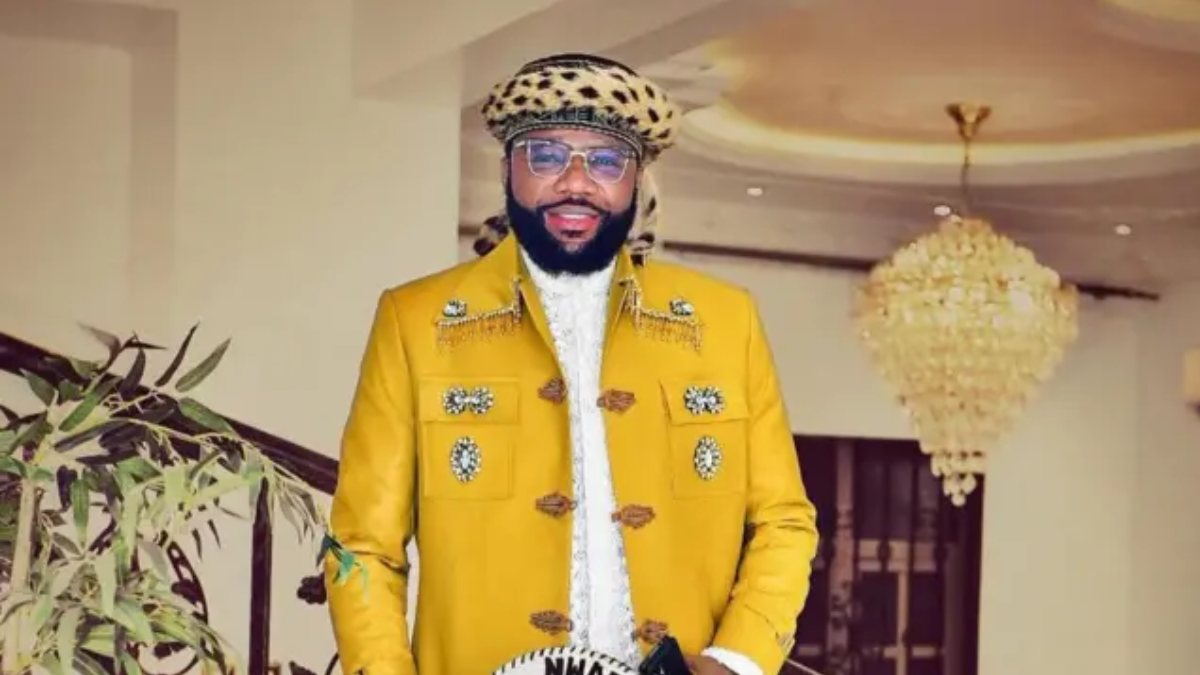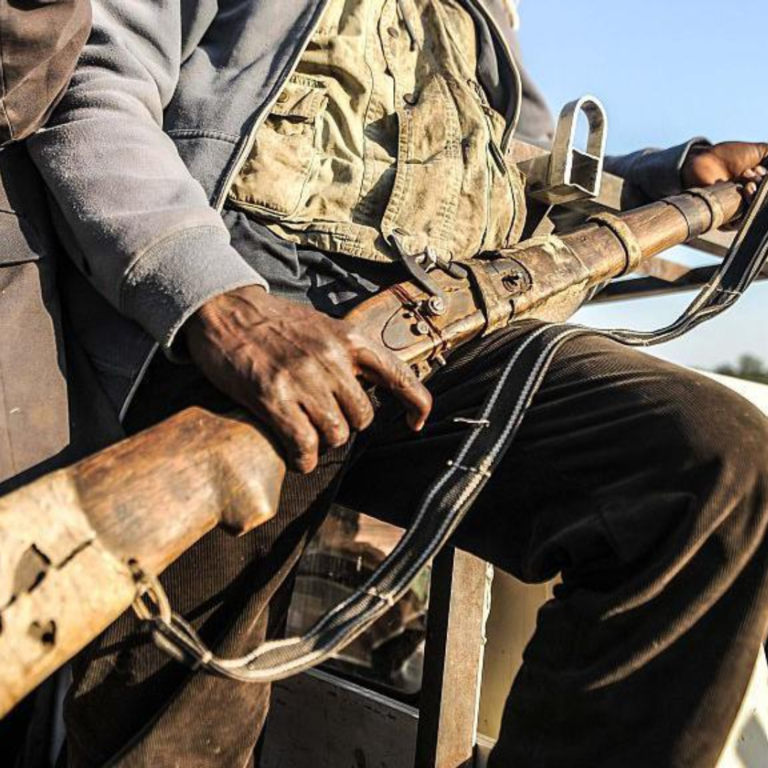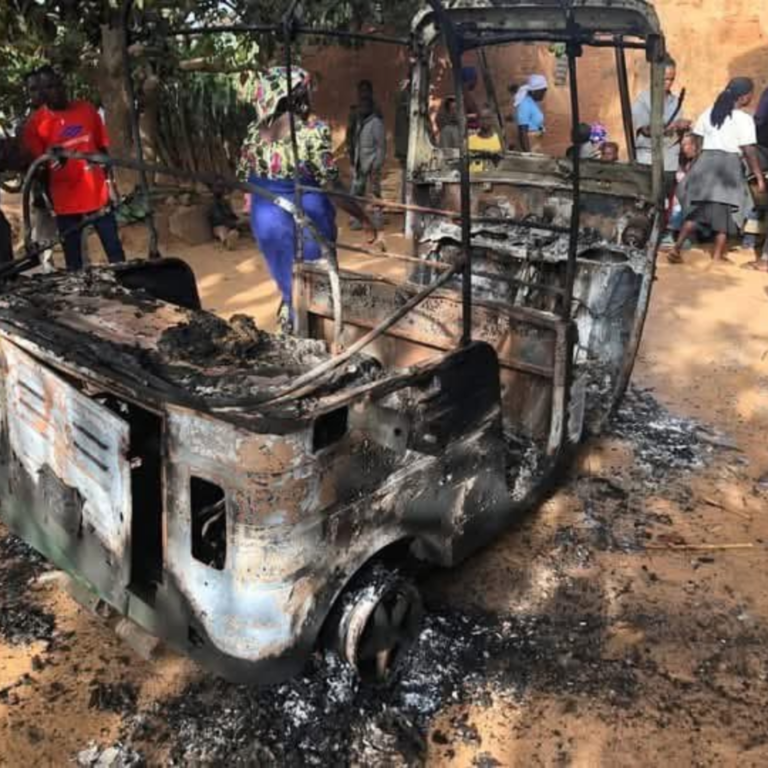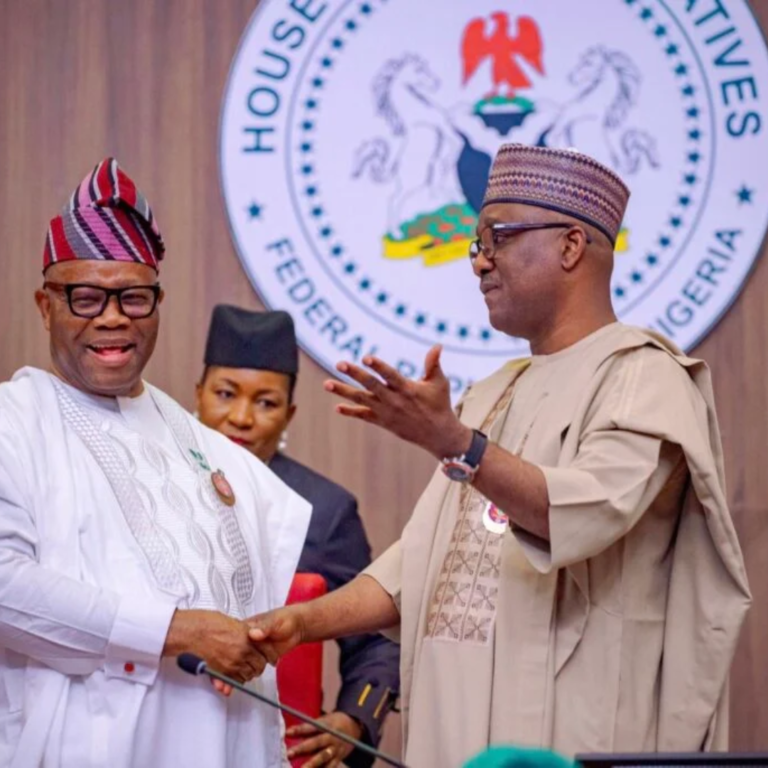Remember when we told you the Citizen Townhall wanted to help you lend your voice to the state of affairs in Nigeria? The event finally happened; all the cool people came through, and it was everything we thought it’d be. If your FOMO caught up with you, this full recount of everything that happened at the town hall will fill you in.
About the Citizen Townhall
First of all, the Citizen Townhall 2025 was a hybrid event held on February 25 in Abuja. It was organised by Zikoko Citizen in partnership with Luminate to serve as a platform to bring together stakeholders to discuss the crucial role that young people play in Nigeria’s democracy and development.
This year, for its first edition ever, the town hall featured industry experts, changemakers, and, of course, young Nigerians who brainstormed ideas for improving youth involvement in politics and governance. It also featured the launch of a data-driven report on youth insights.
A welcome address and an interactive session
The event started with a welcome address by Tomiwa Aladekomo, the CEO of Big Cabal Media (BCM), Zikoko Citizen’s parent company, emphasising the role that Zikoko Citizen has played in keeping young Nigerians informed and aware, the importance and potential of the event’s outcome, the report.
The welcome address was followed by a pretty interactive discussion among the attendees– you just had to be there.
The spice in the conversation first came in through a statement made by an attendee from the Advocate for Human Rights and Development, who said he believes the Nigerian youth are docile and not interested in politics. Chukwudi Ozalla, from the Advocacy for Change Initiative, agreed with him, while another attendee, Mathew Dennis, argued that this was kind of untrue as he believes Nigerian youths are not given the opportunity to participate in leadership.
This was followed by strong opinions from Abdullahi Faruk of Activista, who pointed out that young Nigerians are active and interested and have shown this in various ways, including the EndSars protests and EndBadGovernance protests, both of which have shown the governments’ intolerance to constructive criticism and complaints. If you think it stopped there, you’re wrong– other attendees gave strong opinions on the factors that have blocked young people from participating in governance. You should probably watch the full conversation here.
A keynote address
The conversation was followed by a keynote speech by Toyin Akinniyi, the Vice President of Luminate, Africa. Her speech touched on various areas such as the efforts of young people (in Nigeria and Africa) to contribute to good governance and development. She pointed out that a bulk of these activities take place in online spaces and that it is important to figure out how to make those spaces safe for them as “erosion of rights to free expression online, online harassment, weak data protection threaten their ability to participate fully and safely.”
Akinniyi’s speech also emphasised the importance and timeliness of the Citizen Report. “It provides us with an opportunity to redefine youth engagement in governance, particularly in a digital era where technology and Artificial Intelligence (AI) are redefining civic participation,” she said.
A second interactive session
Akinniyi’s keynote address was followed by another interactive conversation which dwelled on one of the things she addressed in her speech– the use of social media by young people as spaces for discussions involving democratic change as well as the threat that misinformation poses a threat to civic engagement among the youth. This interactive session was just as engaging as the first, with several attendees sharing their diverse opinions on key issues raised both by the host and fellow attendees.
Panel one– Youth as Catalysts for Democratic Change.
The discussions gave way for the first panel of the day titled Youth as Catalysts for Democratic Change. The panel was hosted by Osaruonamen Ibizugbe, Project Officer, Media in Gender, at the Centre for Journalism Innovation and Development (CJID). It was made up of three panellists– Busola Ajibola, Deputy Director of the CJID; Chioma Iruke, a FactChecker at the Centre for Democracy and Development (CDD) West Africa, and Mahmud Jafar, a Senior Analyst at Gatefield.
The panel discussed a number of issues, such as the impacts of the Not Too Young To Run bill in giving youths the opportunity to effect change through politics and the role of traditional and religious leaders in influencing civic change among young people, among others. Some of the panel’s resolutions are that:
- There’s a need to educate young people about the direct impacts of their participation towards the wellbeing of the country’s democaracy and development.
- Young people at low levels must be trained on how to actively engage the government and how to drive change.
- Town halls should be organised in rural areas to engage young people on the importance of civic engagement as a tool for change.
Panel Two– The Role of The Media In Amplifying Youth Voices.
The next panel to follow was the second panel titled The Role of The Media In Amplifying Youth Voices. The panel was hosted by Chigozie Victor, Senior Editor at Zikoko Citizen. It was made up of three other panellists– Rotimi Olawale, Executive Director at YouthHubAfrica, Samad Uthman, Digital Investigative Journalist at AFP, and Ope Adetayo, Nigeria Correspondent at Reuters.
The panel examined various issues like the representation of the youth in the media and how it impacts their participation in politics and the role of the media in curtailing misinformation among others. Some of the panel’s resolutions were that:
- There’s a need for positive representation of the youth in the media
- There’s a need to tell both good and bad stories about young people equally
- The media has a role in clamping down on the misinformation that discourages young people from participating in Politics.
The panel was followed by a tea break and an interactive conversation among attendees and speakers about the discussions and issues raised in the first and second panels.
Report presentation and an interactive session
The Citizen Report is a data-based insight into how young Nigerians are affected by misinformation and digital threats, how they are trying to navigate it as well as what the government and other stakeholders can do better.
The presentation of the report was done by Anita Eboigbe, the Chief Operating Officer of Big Cabal Media. While pointing out some of the key findings of the report, Eboigbe pointed out the need for the media, Civil Society Organisations (CSOs) to use this information to make the digital space safe and conducive both as a place for Nigerian youths to interact with each other, find information, and drive democratic change.
The presentation was followed by an interactive discussion among the attendees about the findings of the report, particularly on the low level of trust in traditional media.
Third panel– Best Practices for Co-Creating Initiatives With and For Young People
The last panel, titled Best Practices for Co Creating Initiatives With and For Young People. This panel was hosted by Zubaida Baba Ibrahim, Sub-Editor at Nigeria Health Watch, and it was made up of two other panellists– Amina Salaudeen, Women’s Rights & Safety Officer at TechHer, and Titilope Fadare, Assistant Production Editor at Science Development Network, Sub-Saharan Africa (English).
The panel examined various issues, like the need to hear from young people before developing projects and initiatives directed at them and the challenges and flaws in programs directed at young people among others. Some of the panel’s conclusions include:
- The need to hear from young people before creating programs and initiatives for them.
- The need to create programs that impact as many young Nigerians as possible rather doing creating surface level initiatives that have little to no impacts on them.
- The need to encourage the implementation of initiatives among young people by giving them a sense of ownership in the programs created for them.
The final panel was followed by a vote of thanks by Anita Eboigbe to mark end of the event. While thanking the participants and Zikoko Citizen’s partners, Luminate, Eboigbe pointed out the need for the conversations had at the townhall to go beyond the venue, as well as the need for the findings of the Citizen Report to serve as directives for stakeholders who make decisions that impact young Nigerians. She also emphasised Zikoko Citizen’s commitment to holding more events that advocate for young people in Nigeria.
“We want to develop this (the Citizen Townhall and The Citizen Report) and continue to create a space for us to have data and for us to gather the ecosystem together to do the things that really matter. We want to do this as people who have understood and continue to try to understand young people,” she said.




